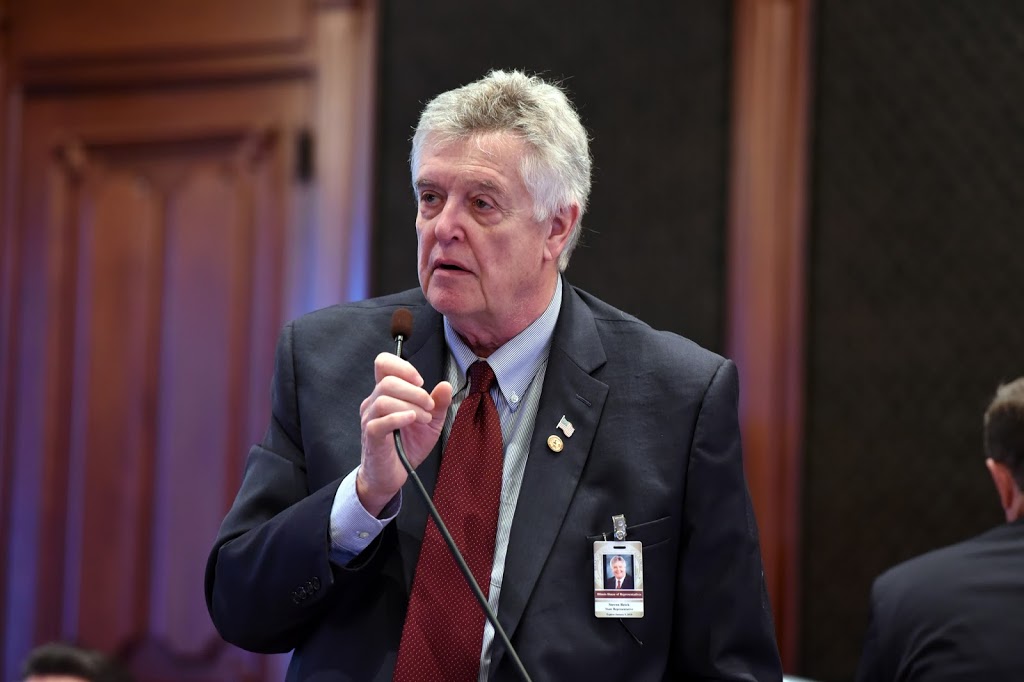A bipartisan coalition of lawmakers is responding to incidents of mass gun violence across the nation with a bill that would provide the courts with the ability to remove firearms from mentally distraught individuals while protecting the civil liberties and constitutional rights of law-abiding gun owners. The amendment to HB 2354, which includes both Republican and Democrat lead sponsors, was filed in Springfield today.
“The common thread with most of these acts of mass gun violence is that there were warning signs,” said State Representative Steve Reick (R-Woodstock), a Chief Co-Sponsor of the bill and leading member of the bipartisan group that drafted the bill. “In almost every instance there were clues- comments made to others or behaviors that sent up red flags. With the passage of this bill, family members or law enforcement would have the legal means to get guns out of the hands of mentally distraught people. Equally as important, lawful gun owners would not be faced with another legislative mandate that diminishes their rights because of the actions of a small number of troubled individuals who commit criminal acts.”
Reick continued, “There’s a mental health component of these violent crimes that cannot be ignored. Rather than passing legislation that infringes upon the constitutional rights of lawful gun owners, we need to turn our attention toward mental health issues that allow some people to use their firearms to harm others.”
Through HB 2354, family members or law enforcement could petition the court for an emergency firearms restraining order, and the case must be heard as soon as possible but in a timeframe not to exceed 14 days. Those petitioning for an emergency order must show probable cause that the respondent poses an immediate and present danger of causing injury to themselves or others by owning or having access to firearms. If probable cause is established at the hearing, the court will issue an emergency firearms restraining order and may issue a warrant directing law enforcement to search the respondent’s property and seize his/her firearms. At that point, the Illinois State Police (ISP) will have the authority to suspend or revoke the respondent’s Firearm Owner’s Identification (FOID) Card and concealed carry license and the respondent will have to relinquish those cards to the ISP.
“The probable cause element was an important point of negotiation in this bill,” said Reick. “Initial language for obtaining a firearms restraining order only required reasonable cause. I felt we needed stronger language in place to ensure the law would not be misused.”
If an emergency firearms order of protection is issued, a full court hearing would need to occur within 14 days, at which time a determination would be made regarding a six-month firearms restraining order. Whereas proof of probable cause would trigger an emergency order, the six-month firearms restraining order would require clear and convincing evidence, a higher standard of proof. “Again, ‘clear and convincing’ is an important distinction,” added Reick. “If we are going to put a six-month order in place, the evidence must be overwhelming. In every step of the process, my goal was to keep the provisions very targeted so that lawful gun owners are protected.”
Other elements of the bill that were negotiated by Republicans include the right of the respondent to petition the court to transfer his/her firearms to a person who does not live at the same address and who is lawfully able to possess firearms, and assurances that upon the expiration of any firearms order of protection, the FOID card and concealed carry license would be returned to the respondent without delay. Additionally, if the allegations are not proven at the full hearing, the record of the case would be immediately expunged, so as not to do any harm to an innocent respondent, and strict penalties for perjury would apply to those who would make false statements in a petition for a firearms restraining order.
“The language of this bill is the product of weeks of bipartisan discussions and negotiations,” Reick said. “As is the case with any negotiation, no one walked away having received everything they would have liked, but we all agree we have a solid piece of legislation here that would add an important new layer of protection for Illinoisans and could serve as a model for other states.”
Click here to hear Rep. Reick speak about the bill in a radio interview.
